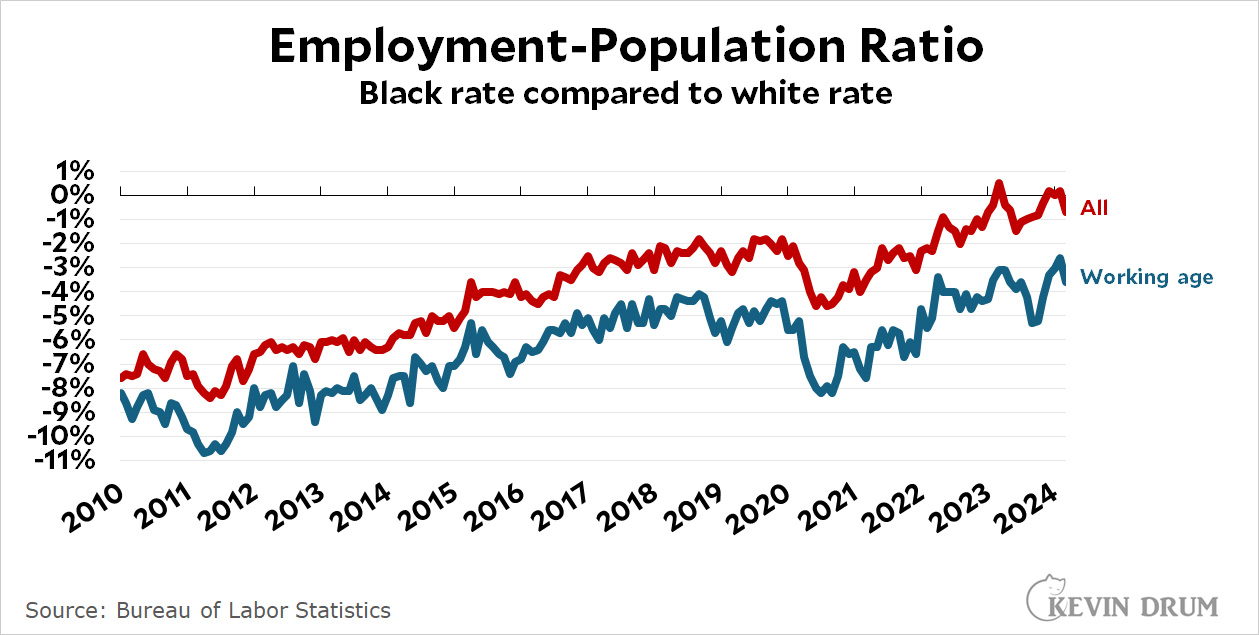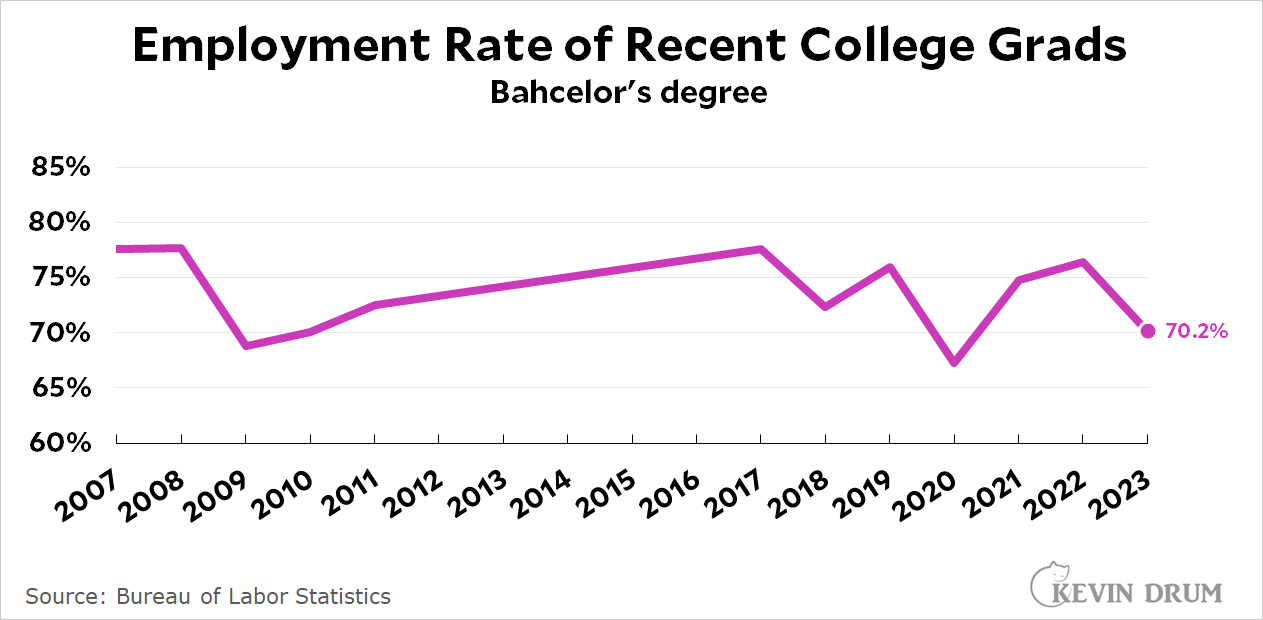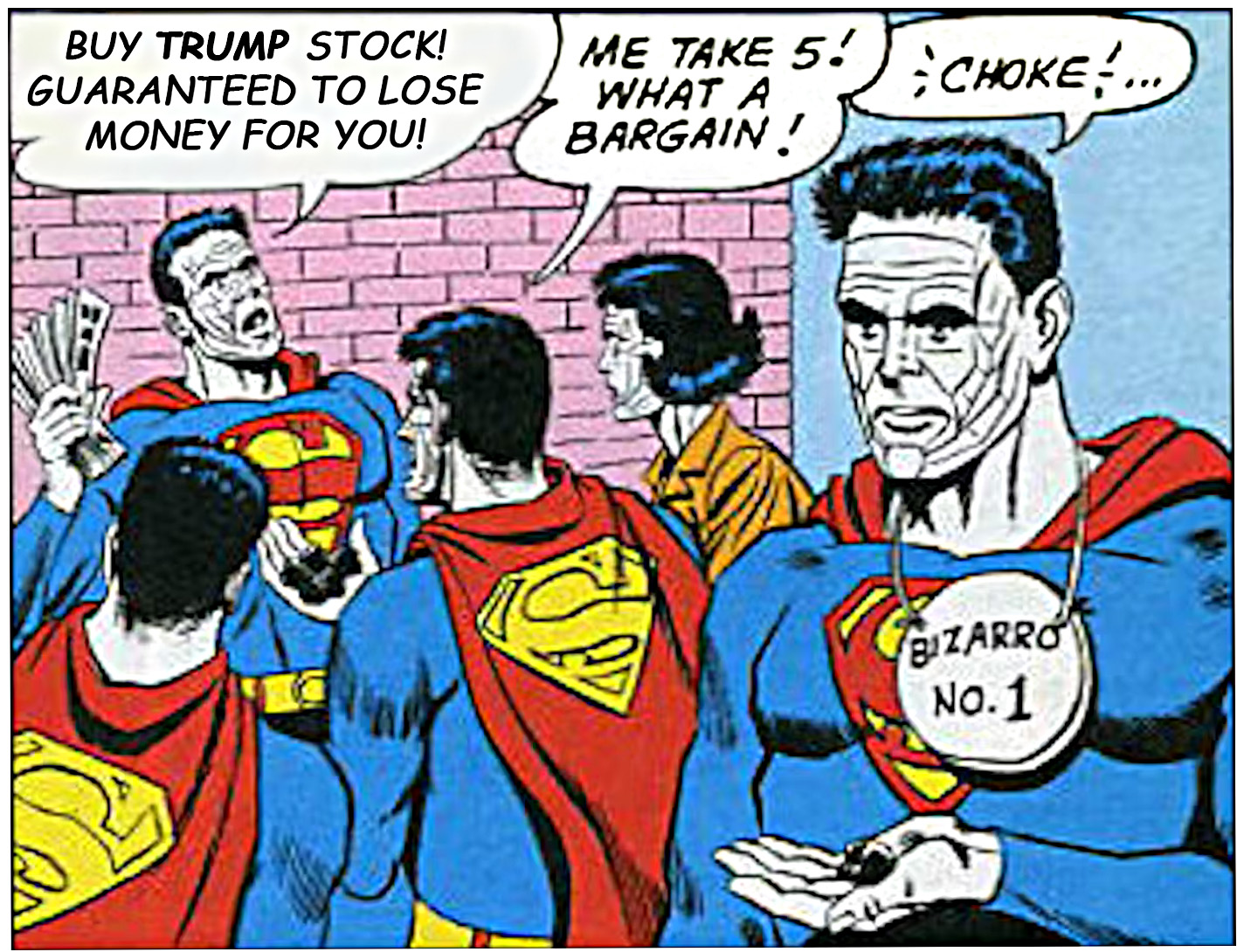Here's some good news:
The vote was 3-2 in favor of banning noncompete agreements for new workers and voiding them for all existing workers (except C-suite executives). This will eliminate the ridiculous practice of fast food chains hiring sandwich makers and then prohibiting them from quitting and going to work for a different fast food chain—and giving their valuable, proprietary sandwich making expertise to the competition.
Corporate America has only itself to blame for this. Noncompetes used to be limited to high-end jobs like coders or lawyers. But then, as usual, some bright boys got the idea of expanding the idea to poor shlubs working minimum wage jobs. That was outrageous enough that it finally produced support for killing noncompetes completely.
In any case, it's a good thing. It promotes a more dynamic economy, and companies still have the ability to protect trade secrets. We've banned noncompetes in California for more than a century, and it's helped build the biggest, most innovative economy in the country. According to the Washington Post:
A Labor Department study published in June 2022 estimated that 18 percent of Americans are bound by noncompete agreements, while other research suggests it could be closer to 50 percent. They are used in a wide range of industries, including technology, hairstyling, medicine and even dance instruction, while imposing restrictions on both high- and low-wage earners.
The FTC estimates that banning noncompete agreements could create jobs for 30 million Americans and raise wages by nearly $300 billion per year.
All good free-market capitalists—as opposed to those who are merely shills for big corporations—should be happy about this. The United States will do nothing but benefit from it.¹
¹Assuming, of course, that it holds up against the inevitable Chamber of Commerce court challenge in the northern district of Texas.





